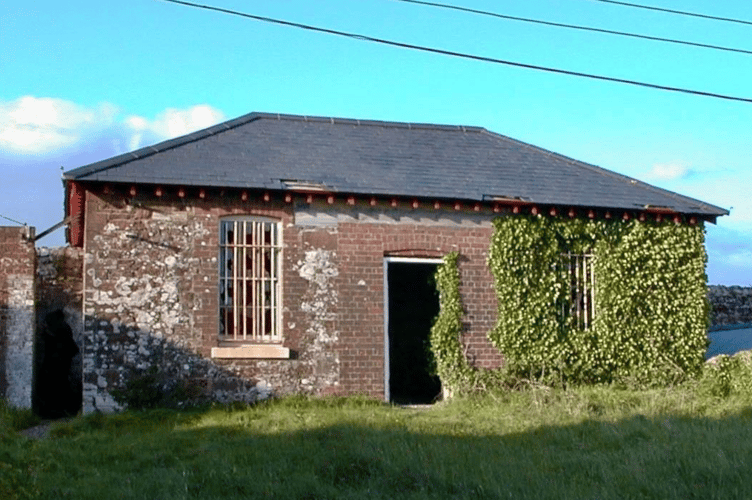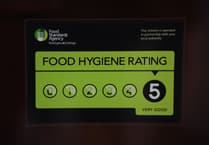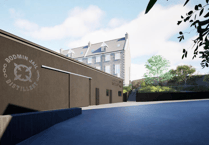EACH week, hundreds of planning applications come before Cornwall Council’s planning department, seeking to win approval for various plans right across the Duchy.
These plans can comprise of a number of different reasonings – ranging from permission to replace windows or listed building consent ranging up to large house building developments or changing of use of a building, for instance, from an office to a café, or flats.
Within this large and often complex system, there are a number of formats from which planning advice and approval can be sought.
These range from full applications where all the details which comprise a proposed development or work to a building are submitted, to outline applications, where further details are yet to be confirmed, for example, an outline application with reserved matters for appearance may not confirm the final proposed development but rather seek permission in principle.
An example of this is one for an outline permission for 20 dwellings on land with reserved matters for appearance and scale; the reserved matters would require further permission later for their inclusion.
Other types of applications include pre-application advice requests, where would-be developers submit often outline proposals to a local authority to ascertain whether it is likely to gain support or not prior to submitting a planning application.
The vast majority of applications are decided by planning officers employed by a local authority under ‘delegated powers’, meaning they do so on behalf of their employer, however, some applications are ‘called in’ by local councillors to be discussed at an area’s strategic planning committee meeting, meaning the final decision rests with a committee of councillors.
Council criticise ‘irreversible’ changes
CORNWALL Council have been critical of the damage caused to a Grade II listed building in Millbrook.
An application was made for the retrospective application for thermal upgrading of the roof between the rafters, Air source heat pump installation, external lighting on PIR and external signage with associated landscape enhancements. Proposed change of use of the Straw Store and Latrines from Residential (Use Class C2) to Residential (Use Class C3) and Commercial, Business and Service (Use Class E) (all retrospective). Proposed conversion of derelict Latrines into external shower room using existing connection into drainage system.
However, Cornwall Council refused the application on the grounds of the harm it would cause the building, adding that the works undertaken were harmful to the authenticity and originality of the building adding that the opportunity to record further historic and archeological significance of the site is now lost.
Refusing the retrospective application, Cornwall Council said: “The unauthorised nature of the works have resulted in substantial harm to the grade II* listed heritage asset which have not been mitigated. Due to the unauthorised nature of most of the works any opportunity to record further historic and archaeological significance of this site has been lost.
“The works undertaken have harmfully eroded the originality and authenticity of the building and its contribution as part of the wider character and setting of this cluster of buildings. The substantial harm identified is not outweighed by any public benefits.
“In advance of an agreed masterplan that identifies a sustainable and sensitive future for the site as a whole and a demonstration as to how a proposed residential development would specifically support long-term sustainable open access and economic opportunities the proposal has failed to demonstrate how residential use of the building would continue to support public access and local enterprise opportunities harmoniously.
“In addition, the layout of the building, namely the absence of internal shower and toilet facilities and the presence of a raised gravelled area for associated use by occupants of the Straw Store, would fail to represent good design in terms of how the use would function well with existing and potential future uses and add to the overall quality of the area, not just for the short term but over the lifetime of the development.”
Proposals for holiday company expansion refused
PLANS for the construction of a new office building that would have enabled the expansion of an established Cornwall holiday operator has been refused by Cornwall Council.
The authority said it could not grant permission for the construction of an office building combined with landscaping and associated works at a location at Blandings, St Eval, Wadebridge because of the impact on a nearby Grade I listed church.
The application was made by Padstow Escapes Ltd, who described in their submissions their reasons why the proposals should have been considered.
They said: “Padstow Escapes has outgrown its current accommodation and requires a permanent, purpose-built base to consolidate and expand operations. The Blandings site provides a central and accessible location within the company’s service area, enabling efficient management of properties across Padstow, St Eval, Mawgan Porth, Rock, and Polzeath.”
Of the 23 comments submitted by members of the public, the majority were supportive of the proposals.
The reasons given by Cornwall Council for refusing the application were: “The proposal is not considered to accord with the spatial strategy for new employment land pursued by this Council through the development plan. The proposal would deliver new employment land in the open countryside in a location with limited accessibility by non-vehicular modes and would, by reason of the introduction of a large single storey office building, parking and associated infrastructure and the associated built massing, light pollution, and increased activity into a sensitive landscape which forms an important part of the setting of the Grade 1 Listed Church of St Uvelus. These impacts erode the remoteness and open setting and lead to a loss of visual amenity and result in harm to the character of the surrounding landscape.
“By reason of introducing a large single storey office building, parking and associated infrastructure and the associated built massing, increased light pollution, and increased activity into a sensitive landscape which forms an important part of the setting of the Grade 1 Listed Church of St Uvelus, the proposal would erode the remoteness of this heritage asset and diminish its prominence within its open setting thereby harming its significance.
“Additionally, the proposal would result in minor harm to a non-designated heritage asset, that being the remains of a former holding location for fighter aircraft associated with the former RAF St Eval Airfield. The level of harm to the designated heritage asset is considered to be less than substantial, with additional associative minor harm caused to the non-designated hardstanding that has not been adequately justified by the public benefits of the scheme and thereby fails to represent an appropriate response to its historic and landscape context.
“Whilst the proposal would provide some wider social and economic benefits through continued and increased employment opportunity and construction employment, and some environmental benefits through biodiversity net gain and renewable energy provision, these benefits are limited and are not considered to outweigh the harm identified to the heritage assets and the positive contribution that these assets make to local landscape character. The proposal does not amount to sustainable development.”
- Keep up to date with the latest planning applications and other statutory notices (such as alcohol licensing and probates) that affect where you live by visiting our online Public Notice Portal – be the first to know by visiting www.publicnoticeportal.uk/cornish-times-series





Comments
This article has no comments yet. Be the first to leave a comment.